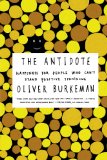Summary | Excerpt | Reading Guide | Reviews | Beyond the Book | Readalikes | Genres & Themes | Author Bio

Critics' Opinion:
Readers' Opinion:
First Published:
Nov 2012, 256 pages
Paperback:
Nov 2013, 256 pages
 Book Reviewed by:
Book Reviewed by:
Stacey Brownlie
Buy This Book
Ehrenreich traces the origins of this philosophy to nineteenth-century America, and specifically to the quasi-religious movement known as New Thought. New Thought arose in rebellion against the dominant, gloomy message of American Calvinism, which was that relentless hard work was the duty of every Christian – with the additional sting that, thanks to the doctrine of predestination, you might in any case already be marked to spend eternity in Hell. New Thought, by contrast, proposed that one could achieve happiness and worldly success through the power of the mind. This mind-power could even cure physical ailments, according to the newly minted religion of Christian Science, which grew directly from the same roots. Yet, as Ehrenreich makes clear, New Thought imposed its own kind of harsh judgmentalism, replacing Calvinism's obligatory hard work with obligatory positive thinking. Negative thoughts were fiercely denounced – a message that echoed 'the old religion's condemnation of sin' and added 'an insistence on the constant interior labour of self-examination'. Quoting the sociologist Micki McGee, Ehrenreich shows how, under this new orthodoxy of optimism, 'continuous and never-ending work on the self [was] offered not only as a road to success, but also to a kind of secular salvation'.
George Bush, then, was standing in a venerable tradition when he proclaimed the importance of optimism in all circumstances. But his speech at Get Motivated! was over almost as soon as it had started. A dash of religion, a singularly unilluminating anecdote about the terrorist attacks of 11 September 2001, some words of praise for the military, and he was waving goodbye – 'Thank you, Texas, it's good to be home!' – as his bodyguards closed in around him. Beneath the din of cheering, I heard Jim, the park ranger in the next seat, emit a sigh of relief. 'OK, I'm motivated now,' he muttered, to nobody in particular. 'Is it time for some beer?'
* * *
'There are lots of ways of being miserable,' says a character in a short story by Edith Wharton, 'but there's only one way of being comfortable, and that is to stop running around after happiness.' This observation pungently expresses the problem with the 'cult of optimism' – the ironic, self-defeating struggle that sabotages positivity when we try too hard. But it also hints at the possibility of a more hopeful alternative, an approach to happiness that might take a radically different form. The first step is to learn how to stop chasing positivity so intently. But many of the proponents of the 'negative path' to happiness take things further still, arguing – paradoxically, but persuasively – that deliberately plunging more deeply into what we think of as negative may be a precondition of true happiness.
Perhaps the most vivid metaphor for this whole strange philosophy is a small children's toy known as the 'Chinese finger trap', though the evidence suggests it is probably not Chinese in origin at all. In his office at the University of Nevada, the psychologist Steven Hayes, an outspoken critic of counterproductive positive thinking, keeps a box of them on his desk; he uses them to illustrate his arguments. The 'trap' is a tube, made of thin strips of woven bamboo, with the opening at each end being roughly the size of a human finger. The unwitting victim is asked to insert his index fingers into the tube, then finds himself trapped: in reaction to his efforts to pull his fingers out again, the openings at each end of the tube constrict, gripping his fingers ever more tightly. The harder he pulls, the more decisively he is trapped. It is only by relaxing his efforts at escape, and by pushing his fingers further in, that he can widen the ends of the tube, whereupon it falls away, and he is free.
Excerpted from The Antidote by Oliver Burkeman. Copyright © 2012 by Oliver Burkeman. Excerpted by permission of Faber and Faber. All rights reserved. No part of this excerpt may be reproduced or reprinted without permission in writing from the publisher.





The Funeral Cryer by Wenyan Lu
Debut novelist Wenyan Lu brings us this witty yet profound story about one woman's midlife reawakening in contemporary rural China.
Your guide toexceptional books
BookBrowse seeks out and recommends the best in contemporary fiction and nonfiction—books that not only engage and entertain but also deepen our understanding of ourselves and the world around us.